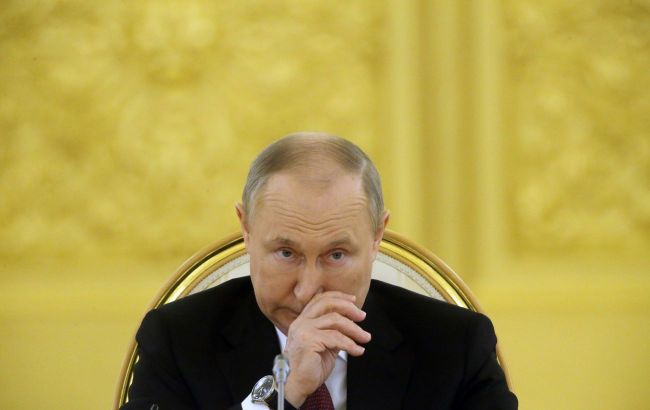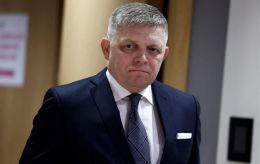Nuclear blackmail and disinformation: How Russia halted Western arms to Ukraine
 Photo: Russian leader Vladimir Putin (Getty Images)
Photo: Russian leader Vladimir Putin (Getty Images)
Russia covertly resorts to nuclear blackmail to influence Western countries. One such incident in the fall of 2022 led to the suspension of weapons supplies to Ukraine, Major General Illia Pavlenko stated in an interview with RBC-Ukraine.
He said that in the past, Soviet and now Russian special services transmitted information that they were allegedly considering the use of nuclear weapons through channels from which this information would definitely reach the leadership of Western countries.
According to the general, such fakes may be transmitted, for example, through exposed agents who will convey the information to their handlers.
"That's how such materials appear, like the ones that were on Biden's desk, stating that the Russians were allegedly preparing and wanted to first launch a nuclear strike somewhere in the Black Sea or hit some military target to cause panic in Ukraine and destabilize the situation in Europe," Pavlenko noted.
The general explained that to promote their “leak,” the Russians play along with the agents. For example, if there is a task to clarify where, when, and how this strike might happen, the Russians, for effect, make changes to their nuclear doctrine, lowering the threshold for the use of nuclear weapons. For Western intelligence, this is practically confirmation of the possibility of an attack.
"Obviously, politicians and military officials cannot ignore this, and accordingly, a ban on strikes, reduction of aid, and so on follows. As you may recall, following the commencement of the Kharkiv operation in 2022, our weapons supply was suspended. That was our first long-term suspension of weapons supplies," the general emphasized.
Pavlenko added that if this had not happened, "the war could have unfolded very differently."
"We don't know this for sure, but given the White House's reaction, they were given misinformation about the possibility of using nuclear weapons and may have been scared and suspended assistance," he stressed.
Other methods of influence by the Russian Federation
Major General Illia Pavlenko also noted that this is not the only method by which Russia influences other countries. As an example, he cited the tragedy involving an Azerbaijan Airlines plane that occurred on December 25, 2024. After the plane crash, relations between Azerbaijan and Russia deteriorated.
Azerbaijani President Ilham Aliyev demanded an apology from Russia and even began closing Russian cultural centers across the country. However, the situation has now stabilized.
"Russian insurance companies, on orders from above, without waiting for the investigation results, are fully paying compensation to the victims. And most importantly – Ilham Aliyev likes to erect monuments to his father Heydar Aliyev in the capitals of different countries. The Kremlin knew this, and they went and erected such a monument opposite the Azerbaijani embassy in Moscow. So they are also working with such diplomacy of influence," Pavlenko explained.
Putin’s nuclear threats
It is worth recalling that since the beginning of the full-scale invasion, Russia has repeatedly threatened Ukraine with nuclear weapons. Its nuclear threats were also directed at NATO countries.
Western media reported that Russian dictator Vladimir Putin in October 2022 was as close as possible to using nuclear weapons against Ukraine.
In November 2024, Putin signed a new nuclear doctrine of Russia. In the updated document, Moscow established that grounds for a nuclear strike could include aggression against the Russian Federation or its allies by any non-nuclear state supported by a nuclear state.

